Alberta
Alberta’s Parker Thompson clinging to season lead after major push by Dutch driver

From promazdachampionship.com
TORONTO, Ont., Canada – Talented Dutch teenager Rinus VeeKay produced another copybook performance this morning on the unforgiving streets around Exhibition Place in Toronto to sweep this weekend’s Cooper Tires Pro Mazda Grand Prix of Toronto Presented by Allied Building Products.
VeeKay’s second win for Juncos Racing in as many days – and fourth of the season – enabled him to close to within seven points of Canadian Parker Thompson in the quest for the Pro Mazda Championship Presented by Cooper Tires and a scholarship valued at close to $800,000 to graduate to the top tier of the acclaimed Mazda Road to Indy open-wheel development ladder, Indy Lights Presented by Cooper Tires, in 2019.
Oliver Askew, from Jupiter, Fla., last year’s winner of the Cooper Tires USF2000 Championship Powered by Mazda, secured his best finish of the season, second, for Cape Motorsports. He also posted a new Pro Mazda race lap record of 1:07.6395 (95.057 mph). VeeKay’s teammate, Robert Megennis, from New York, N.Y., edged out Askew’s teammate, Los Angeles-based Russian Nikita Lastochkin, for the final podium place.
VeeKay had matters virtually all his own way for the majority of the 40-minute race around the 1.786-mile street circuit. He romped into a clear early advantage as Megennis, who had found a way past front row qualifier David Malukas (BN Racing) on the opening lap, adopted some aggressive defensive tactics to maintain his position.
RP Motorsports Racing had performed wonders to repair Harrison Scott’s car following his terrifying crash on Saturday. Sadly, it was to no avail as an unexplained suspension failure as he braked for Turn One on the opening lap ensured he was done for the day. The Italian team experienced more drama on Lap Five when Scott’s teammate, Mexican Raul Guzman, clipped the inside wall in Turn 11 and crashed heavily into the retaining barrier on the exit of the corner. Fellow countryman Andres Gutierrez (Team Pelfrey) also was taken out in the incident.
VeeKay once again took off at the restart as Megennis continued to ensure there was no easy passage for anyone else. Askew, who started sixth, slipped past Sting Ray Robb (Team Pelfrey) and Malukas in quick succession on the restart, then finally found a chink in Megennis’ armor on Lap 19 to move up into second. By then VeeKay was already more than 6.5 seconds to the good.
Askew was granted a lifeline when Brazilian Carlos Cunha crashed in Turn Three while attempting to pass Megennis. Cue another full-caution which was cleared in time for a two-lap dash to the finish. VeeKay, though, was able to hold on and take the victory by a margin of just over half a second. He also ensured team owner Ricardo Juncos of another PFC Award.
Megennis held on for third, despite a late challenge from Lastochkin, with Kris Wright (BN Racing) securing the Tilton Hard Charger Award after steering clear of all the trouble and rising from 12th on the grid to fifth ahead of FatBoy Racing’s Charles Finelli, from Locust Valley, N.Y., who finished sixth for the second consecutive day. Robb completed the unlapped finishers, despite a badly damaged nosecone following an incident on Lap 17 with Thompson (Exclusive Autosport), who struggled home in eighth.

What was once a commanding championship advantage for Thompson has now been trimmed dramatically as the series heads next to Mid-Ohio Sports Car Course in Lexington, Ohio, for another pair of races the weekend of July 28/29.
Alberta
Alberta government should eliminate corporate welfare to generate benefits for Albertans
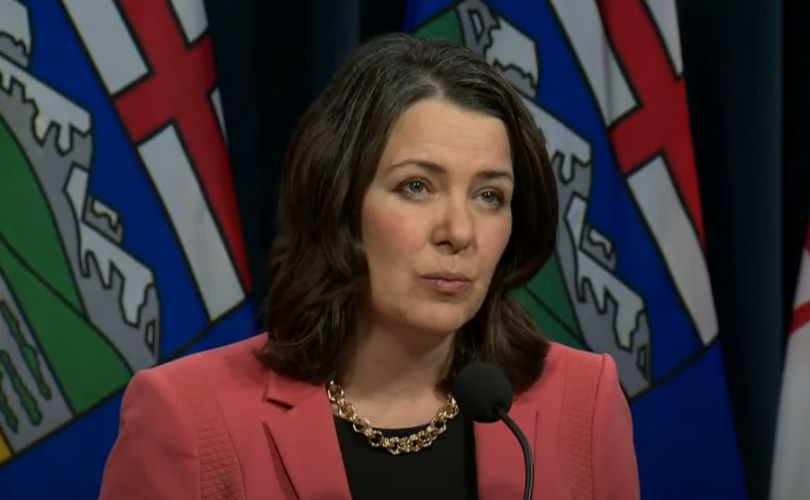
From the Fraser Institute
By Spencer Gudewill and Tegan Hill
Last November, Premier Danielle Smith announced that her government will give up to $1.8 billion in subsidies to Dow Chemicals, which plans to expand a petrochemical project northeast of Edmonton. In other words, $1.8 billion in corporate welfare.
And this is just one example of corporate welfare paid for by Albertans.
According to a recent study published by the Fraser Institute, from 2007 to 2021, the latest year of available data, the Alberta government spent $31.0 billion (inflation-adjusted) on subsidies (a.k.a. corporate welfare) to select firms and businesses, purportedly to help Albertans. And this number excludes other forms of government handouts such as loan guarantees, direct investment and regulatory or tax privileges for particular firms and industries. So the total cost of corporate welfare in Alberta is likely much higher.
Why should Albertans care?
First off, there’s little evidence that corporate welfare generates widespread economic growth or jobs. In fact, evidence suggests the contrary—that subsidies result in a net loss to the economy by shifting resources to less productive sectors or locations (what economists call the “substitution effect”) and/or by keeping businesses alive that are otherwise economically unviable (i.e. “zombie companies”). This misallocation of resources leads to a less efficient, less productive and less prosperous Alberta.
And there are other costs to corporate welfare.
For example, between 2007 and 2019 (the latest year of pre-COVID data), every year on average the Alberta government spent 35 cents (out of every dollar of business income tax revenue it collected) on corporate welfare. Given that workers bear the burden of more than half of any business income tax indirectly through lower wages, if the government reduced business income taxes rather than spend money on corporate welfare, workers could benefit.
Moreover, Premier Smith failed in last month’s provincial budget to provide promised personal income tax relief and create a lower tax bracket for incomes below $60,000 to provide $760 in annual savings for Albertans (on average). But in 2019, after adjusting for inflation, the Alberta government spent $2.4 billion on corporate welfare—equivalent to $1,034 per tax filer. Clearly, instead of subsidizing select businesses, the Smith government could have kept its promise to lower personal income taxes.
Finally, there’s the Heritage Fund, which the Alberta government created almost 50 years ago to save a share of the province’s resource wealth for the future.
In her 2024 budget, Premier Smith earmarked $2.0 billion for the Heritage Fund this fiscal year—almost the exact amount spent on corporate welfare each year (on average) between 2007 and 2019. Put another way, the Alberta government could save twice as much in the Heritage Fund in 2024/25 if it ended corporate welfare, which would help Premier Smith keep her promise to build up the Heritage Fund to between $250 billion and $400 billion by 2050.
By eliminating corporate welfare, the Smith government can create fiscal room to reduce personal and business income taxes, or save more in the Heritage Fund. Any of these options will benefit Albertans far more than wasteful billion-dollar subsidies to favoured firms.
Authors:
Alberta
Official statement from Premier Danielle Smith and Energy Minister Brian Jean on the start-up of the Trans Mountain Pipeline

-

 Education2 days ago
Education2 days agoSupport a young reader through the Tim Hortons Smile Cookie campaign
-

 Business2 days ago
Business2 days agoWEF panelist suggests COVID response accustomed people to the idea of CBDCs
-
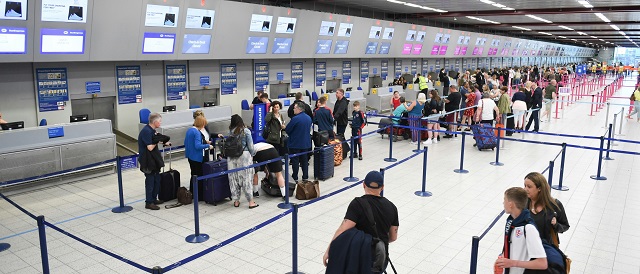
 illegal immigration2 days ago
illegal immigration2 days agoFlight Docs Reveal Which Cities Are Receiving Migrants Under Biden’s Parole Program
-
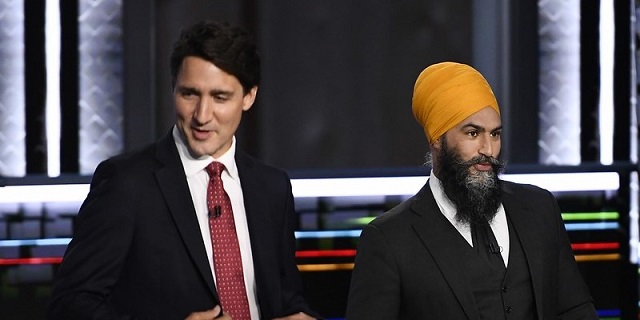
 Fraser Institute2 days ago
Fraser Institute2 days agoCanada can solve its productivity ‘emergency’—we just need politicians on board
-

 Environment2 days ago
Environment2 days agoJournalism Misrepresent Climate Science
-

 International2 days ago
International2 days agoNYPD storms protest-occupied Columbia building, several arrested
-
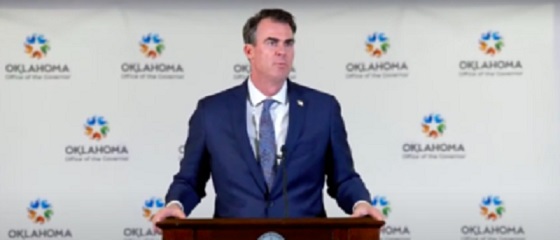
 illegal immigration2 days ago
illegal immigration2 days agoOklahoma Just Became The Latest State To Take Immigration Enforcement Into Its Own Hands
-
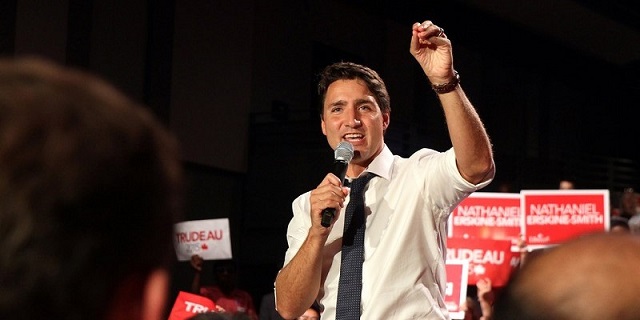
 Economy2 days ago
Economy2 days agoToday’s federal government—massive spending growth and epic betting







